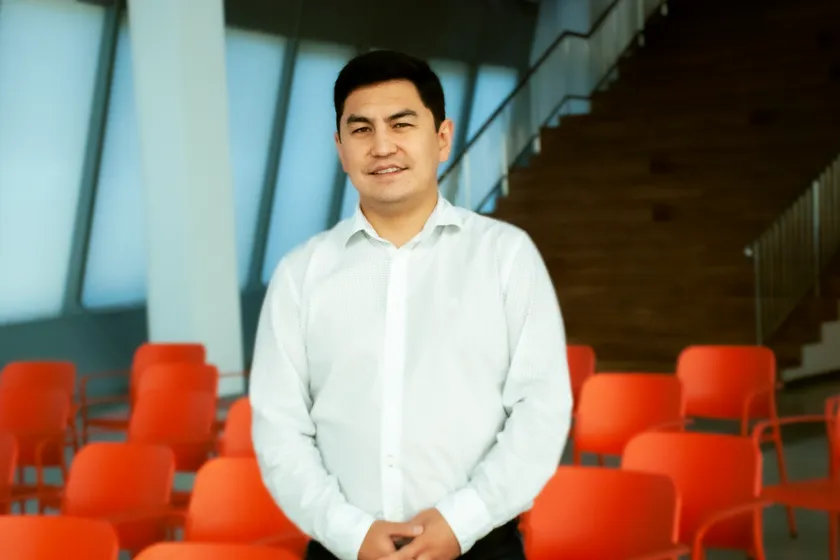It is known as Central Asia’s IT nursery: a lustrous office block in a dynamic commercial area, where the landscape is characterized by innovation, technology, business, and the future.
Astana Hub has been hailed as a convenient, ever-evolving ecosystem for local and foreign startups, with accelerator programs from Google for Startups elevating its prestige among the Commonwealth of Independent States (CIS).
“We were one of the most disciplined partners they have ever worked with,” said Magzhan Madiyev, the CEO of Astana Hub, on the outcome of the hub’s partnership with Google for Startups. In an interview with QazMonitor, he talked about the details of the program and the expat center, which provides migration services to aid the relocation of foreign businesses to Kazakhstan.
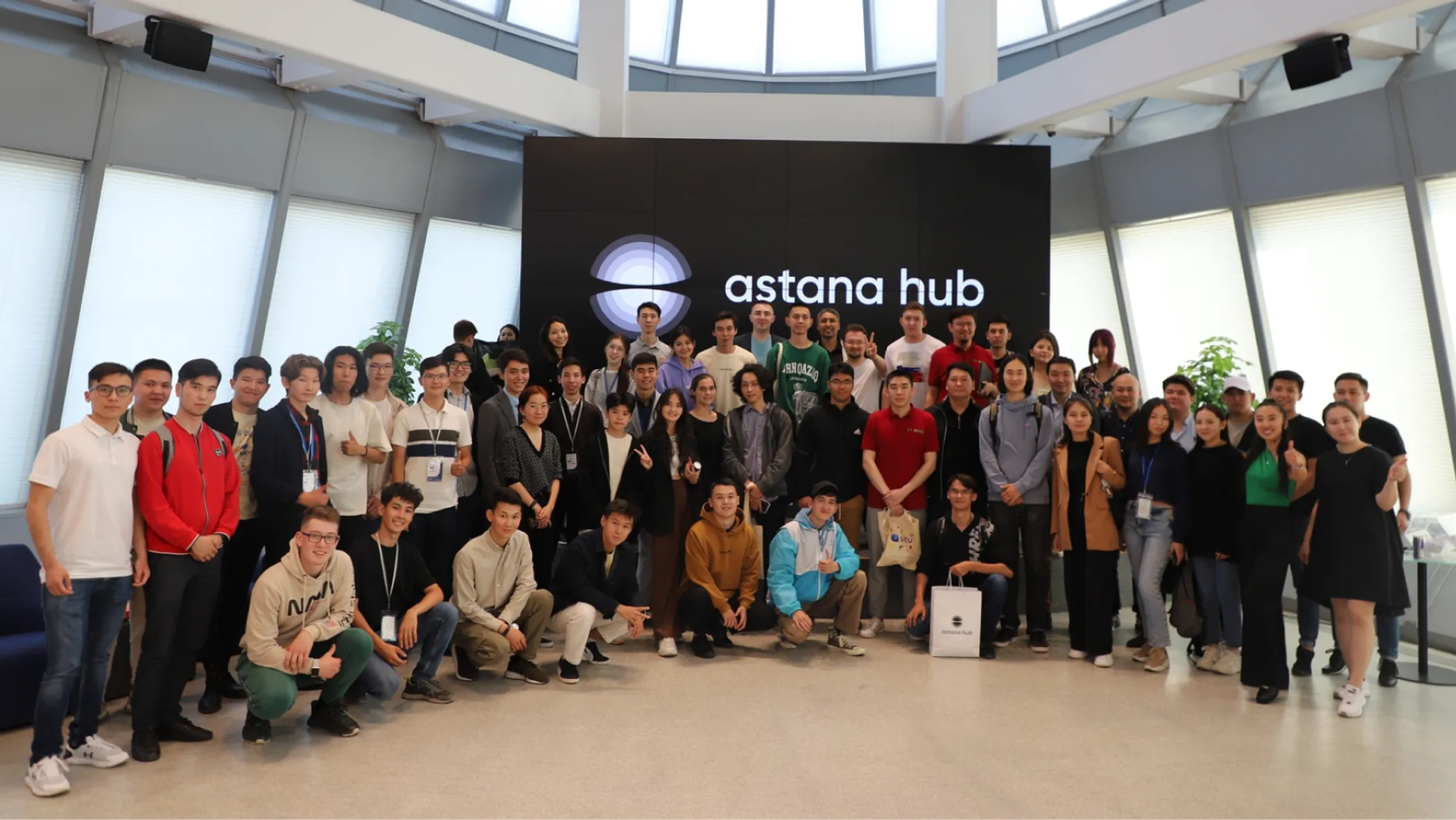
You have recently become a Google for Startups partner. How would you evaluate the first batch of startups?
In April of this year, we became a partner of Google for Startups in the region of Central Asia, plus Azerbaijan and Mongolia. Google for Startups covered this region for the first time using our infrastructure.
We started by launching an accelerator called Silkway. We collected 330 applications. The final selection was done by Google.
Six weeks into the program, one of the projects dropped out for not showing sufficient progress. Each startup sets a weekly goal and submits a progress report at the end of the week. The goals are very ambitious. Our trackers evaluate a startup on a five-point scale; if it gets the same score for three weeks in a row, it will be dropped.
In my opinion, the program is very effective. This is the 12th cohort in the history of Astana Hub, and, of course, every one of them showed great improvement.
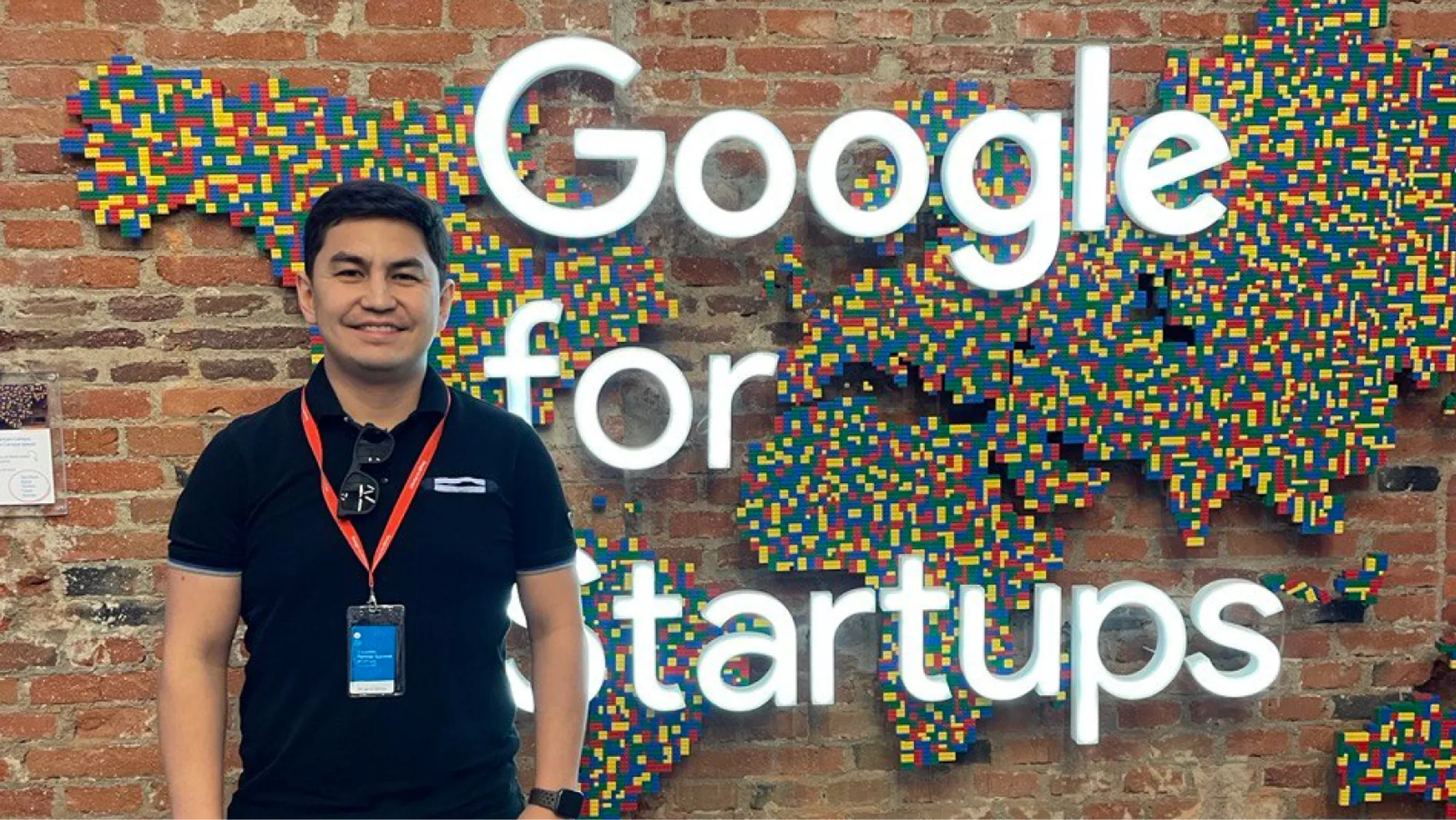
Have you received any feedback from Google?
We recently had a meeting with Google for Startups. They were satisfied with our partnership. They said we were one of the most disciplined partners they have ever worked with.
I believe that it is due to the fact that we are not ‘spoiled’. When we were working our way through the partnership, we went through a rigorous selection process.
The partnership has made the program much more engaging – and stronger. We invited a very strong tracker – Alisher Khasanov.
What results did the startups show during the Google for Startups program?
The ridesharing startup UvU generated $1.5 million in pre-sales, although it had planned to make 10 times less. The Azerbaijani startup Tripsome found partners in Kazakhstan. A startup from Tajikistan, zypl.ai, found partners which are planning to give them $30 million in microloans.
Astana Hub is the only partner of the program in the region. Why?
I have been involved in the construction of the hub from the very beginning; I studied hubs all around the world. I can confidently say that Astana Hub is one of the most effective IT hubs in the world.
To be honest, we are clearly the leading IT hub in the region of Central Asia, Azerbaijan and Mongolia. That’s why Google for Startups’ choosing us is a natural and obvious move.
But I would like to note that we are their only partner in the region even wider than Central Asia. Probably, in the entire CIS.
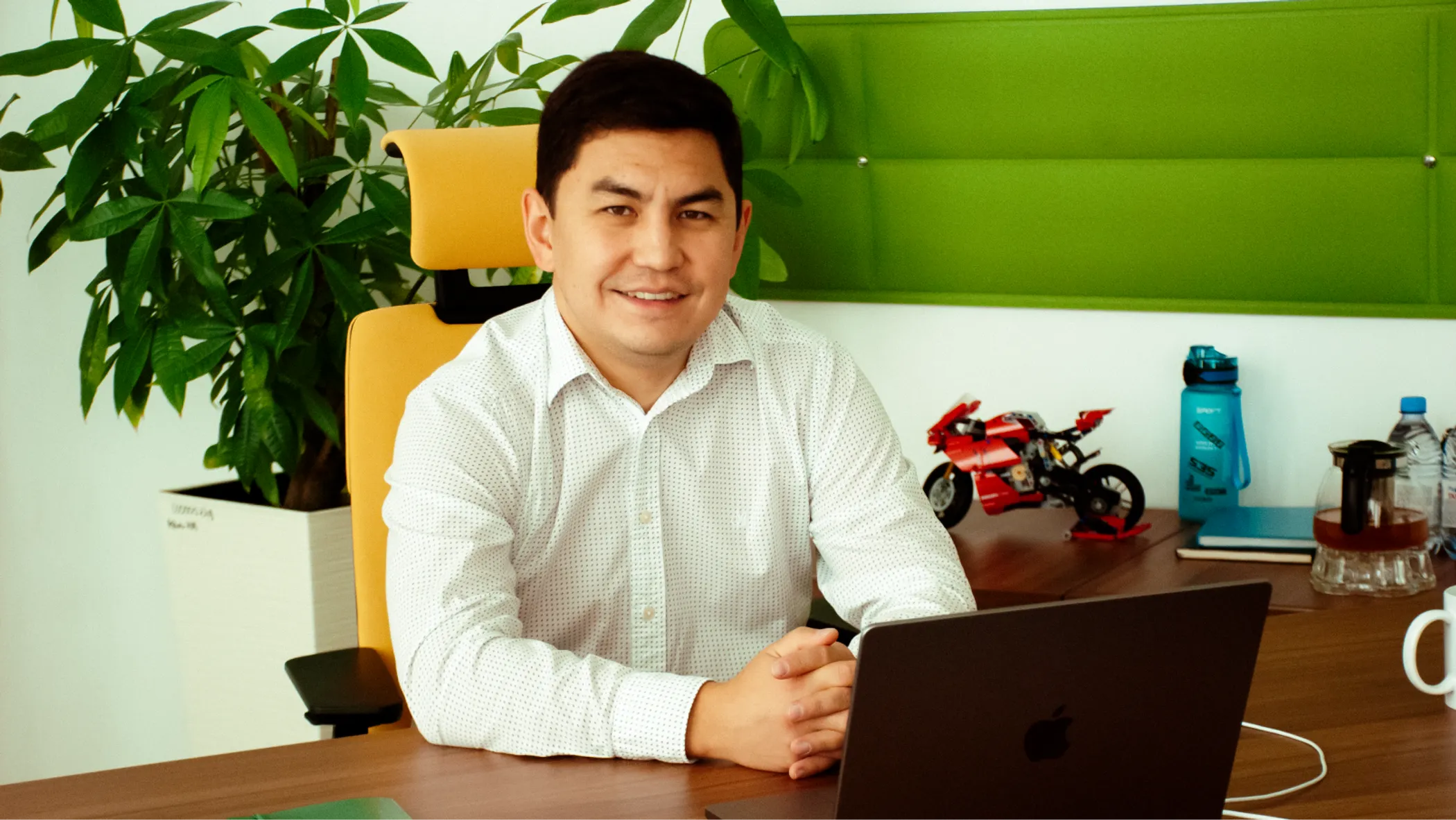
Let's talk about other hub projects. Do you support foreign startups in Kazakhstan?
Our aim is to increase the volume of IT exports and services by $500 million starting from 2025.
In order to achieve this goal, we need to attract talent from all over the world, and we are actively working on this. Naturally, the ones coming to us are mainly our neighbors. We are working with all of the regions of Kazakhstan and are centralizing the community in our technology park. We are talking 22,000 square meters of modern infrastructure.
We have a special preferential visa regime and an expat center that helps expats with soft landing. And we hold hundreds of networking events for our community, which is comprised of students, freelancers, startups, IT companies, corporations, investors, and government employees.
Furthermore, we create a number of educational programs, like Beta Career, where we help students get internships in IT companies. We teach young people how to create IT products using no-code technology. We teach them how to sell their services online through freelancing. We also have one of the best programming schools in the world called Alem. It was founded in cooperation with Nicolas Sadirac, who is a popular figure in IT education and the author of Ecole 42, a famous French programming school where you have no teachers or lectures. A hundred percent of the graduates are employed - it's already been proven.
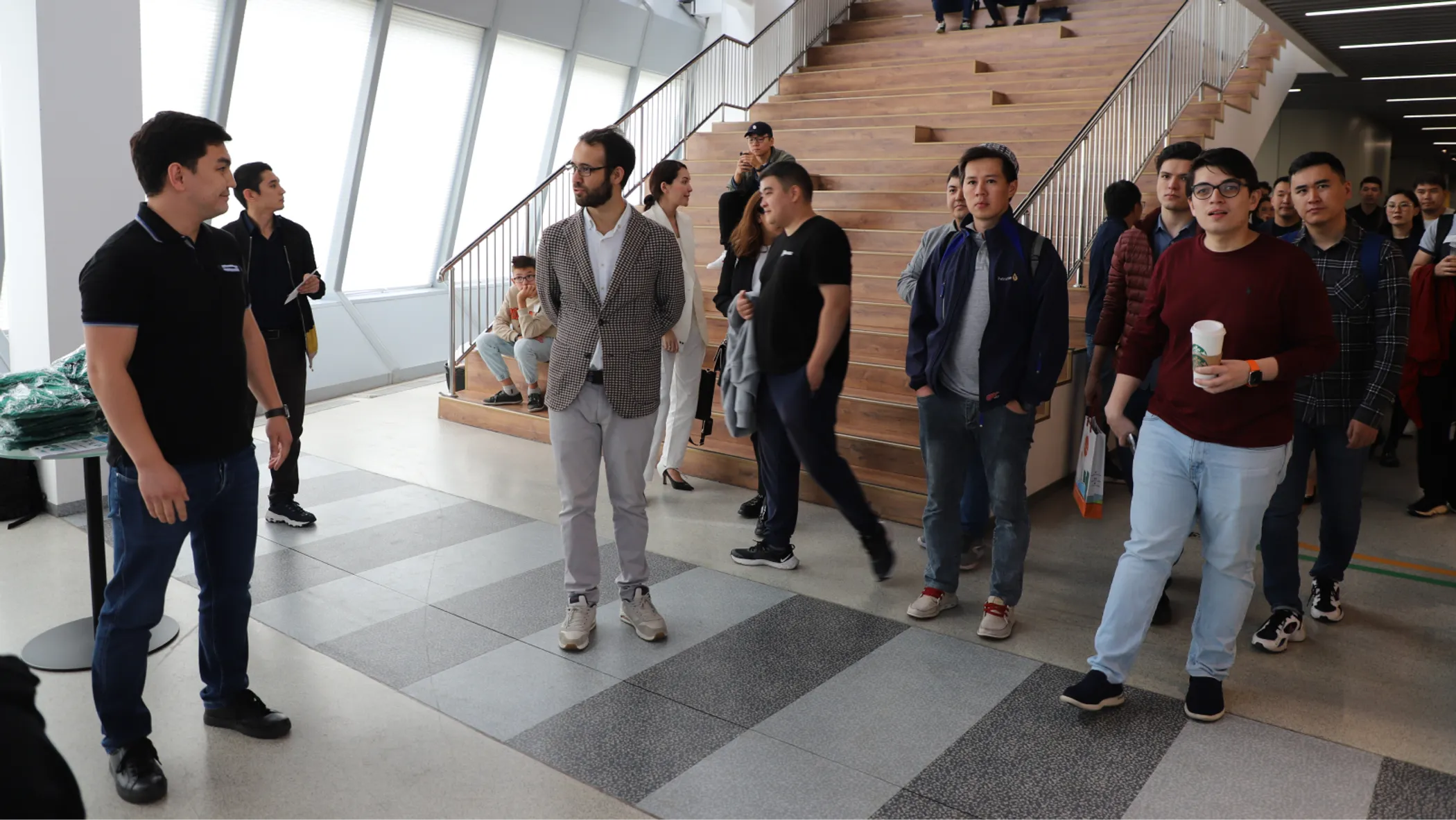
Tell us more about the expat center.
For the convenience of our foreign guests, we have created an expat center at Expo, in cooperation with AIFC (Astana International Financial Center). You can receive a number of state services to help with relocation: obtaining IIN, registration for temporary residence, migration services, and opening a bank account. A similar expat center has been launched in Almaty at Smart Point.
Also, we have customer support in Astana Hub (the call number is 799-777). Five days a week during business hours, our staff can assist you with any questions you may encounter here. Starting with arrival, domestic issues, obtaining IIN, registration of a legal entity (it can also be registered in the expat center either within the jurisdiction of AIFC or the national legislation of Astana Hub).
How to become a resident of Astana Hub?
You need to form a legal entity. Then, read all of our rules and requirements. You can find them at astanahub.com under the tab Tax Incentives. You can apply online; you do not need to bring any papers. You need to submit a business plan, information on the founders, and the standard package of documents. The commission reviews the application and makes a decision. The procedure is not very complicated. Previously, it would take no more than two weeks, but now, due to a great influx, the procedure can take up to a month.
Today, we have 860 company-residents of Astana Hub and every working day we get three more. By the end of the year, we will have more than 1,000 residents.
Does Astana Hub have enough resources for so many companies?
When we developed the hub model, we decided to stick to the extraterritorial principle. Only 100 companies are stationed in the hub; the other 760 are located all over the country. You can be anywhere in Kazakhstan - it's a cloud-based IT hub.
What makes Astana Hub a lucrative partner for businesses?
Tax incentives are the first thing companies come to us for, if we're talking in terms of mature companies that generate revenue. It's a pretty strong measure of support.
Why did we go this route? When we studied international cases, we realized that startups need venture capital investments like air. Kazakhstan traditionally does not have a highly developed. Venture business has its own specifics - it took time to develop this culture.
When, for example, Glovo or Wolt entered our market, we know that they have very long-term financial leverage, which means they can invest hundreds of millions of dollars, at minimum. So, unless we invest more than 5 million, it is difficult for local businesses to compete with them.
We decided that our companies could receive support at least through tax incentives. As of today, our participants received about $150 million in tax incentives, and we can put a sign equal to venture investments.
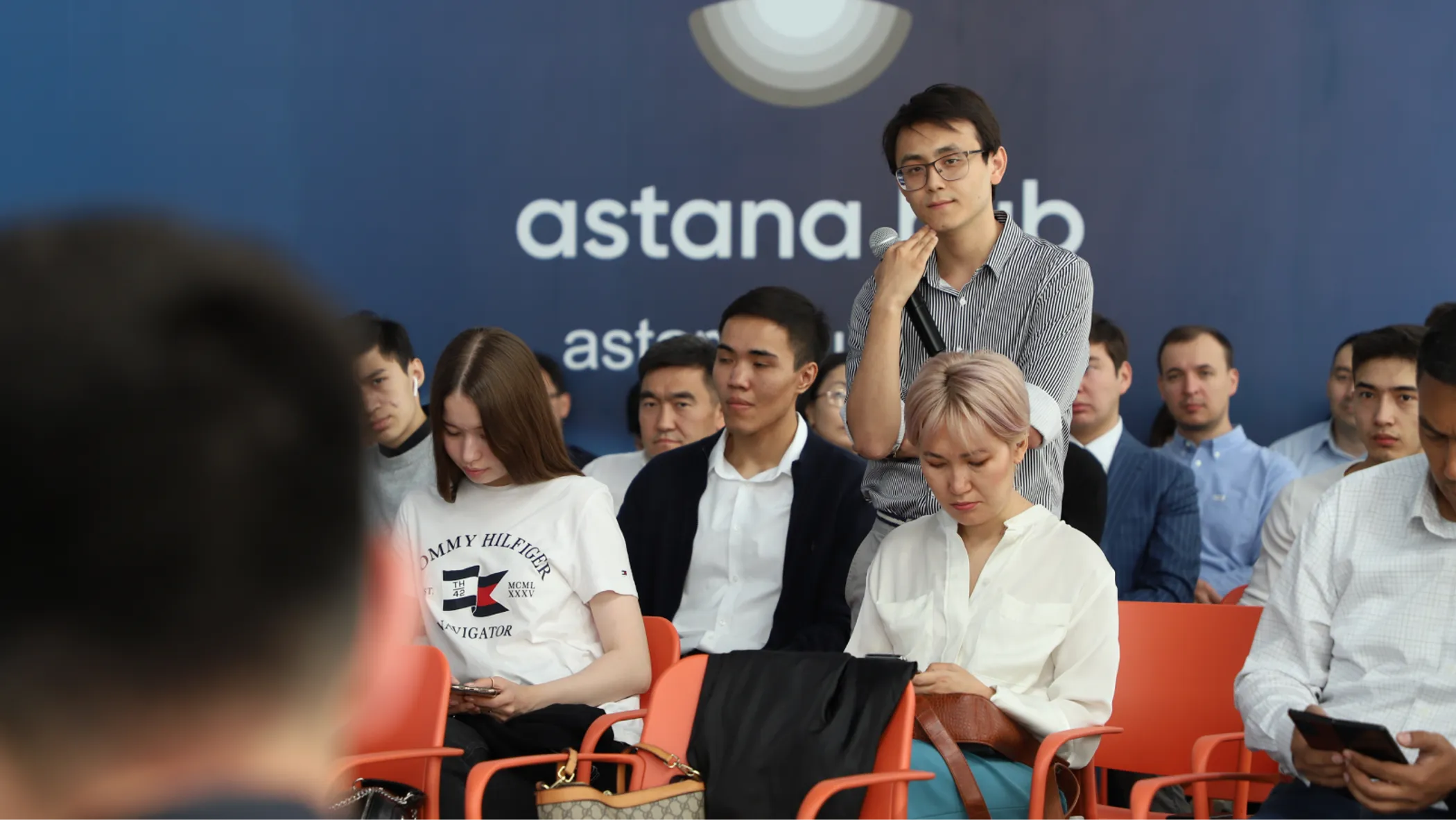
Who are the investors of your programs?
In the first four years of our work, our residents have attracted investments totaling $200 million. These are mainly the company's own funds, followed by private venture capital investments and very often business angels who invest in Kazakhstan. These are people like Timur Turlov, Murat Abdrakhmanov, Marat Tolebayev, and Bakhyt Niyazov.
Shanyraq.vc and MOST Ventures are very actively developing now. This is all private money and these people understand what the venture specifics are, so they invest in so-called smart money. This is very useful for startups, because they get not only money but also mentorship and expertise from their investors.
By getting smart money, companies get an investor who does not impede the development of the business, which is also very important.
Additionally, start-ups of IT companies get credit loans or grants, but these represent very few cases since we don't give out grants - though Astana Hub has a program called seed money. We have already given out ₸300 million as seed money to startups in exchange for 1% of their revenues. The conditions are close to a grant.
There are a number of venture capital funds in Europe and Asia that have a strategy of investing in talent in emerging markets and we are in contact with these funds.

What support measures does Astana Hub plan to implement in the future?
Tax incentives are a great support from the government - but this won’t impress anyone these days. Many countries around the world give similar conditions. I think that, in general, the ecosystem as a package of support measures from the hub can have a positive influence.
As for the next step, I see two things. One is the Tech Orda program, which gives financial support for IT schools. The program is unique - there is nothing like it in the world. The essence is to offer a fee waiver of $1,200 for training in private IT schools. This year, we’re going to support 3,000 people; the next year, 4,000, and then 6,000 people. Overall, that’s 20,000 people.
Second is the development of tokenomics to support the unity of our ecosystem. We want to launch our own hub token, which will act as an internal currency. Through gamification, it will increase the involvement and interaction of our participants and develop peer support. The possibilities include getting a discount on rent, purchasing programs, and buying coffee and merchandise. We offered Binance to participate in that, so we're discussing that now.
